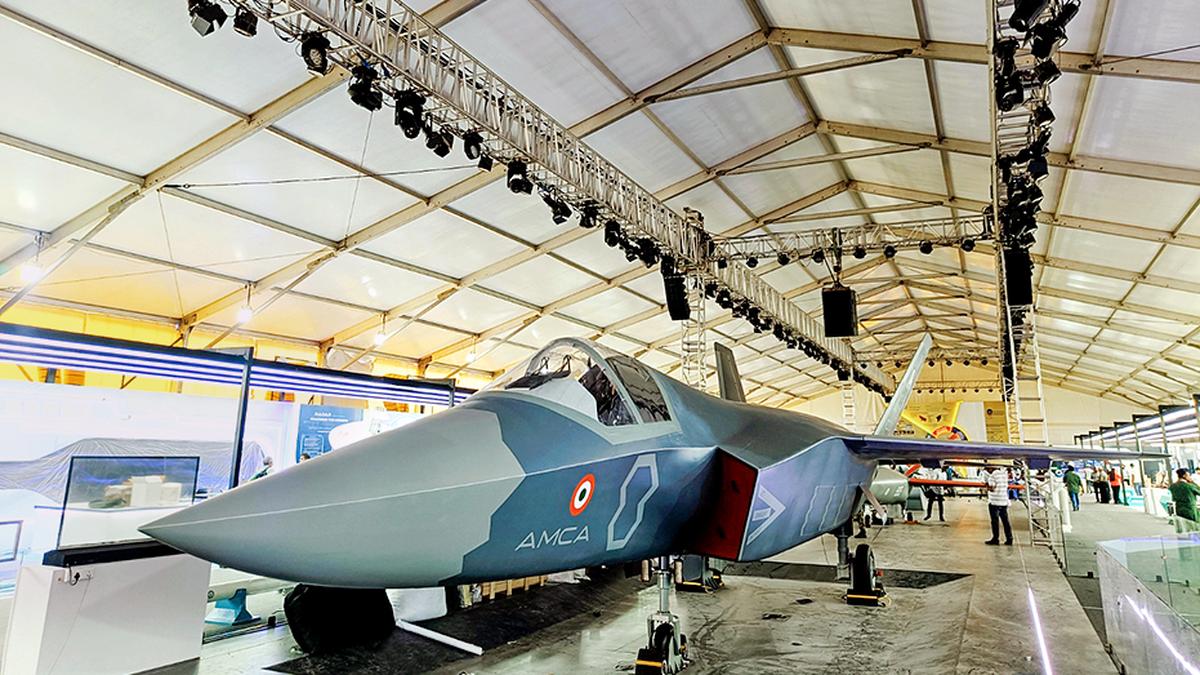SOURCE: AFI


India’s ambitious Advanced Medium Combat Aircraft (AMCA) program, aimed at developing a fifth-generation stealth multirole fighter for the Indian Air Force (IAF) and Indian Navy, is nearing a critical milestone. The Aeronautical Development Agency (ADA), under the Defence Research and Development Organisation (DRDO), is expected to finalize the production partner for the AMCA within the next six months, as announced by DRDO Chief Dr. Samir V. Kamat in June 2025.
This decision, pivotal for the timely execution of the ?15,000 crore project, reflects India’s push for self-reliance in aerospace and its strategic response to regional threats, particularly from China and Pakistan. The selection process, involving a competitive public-private partnership model, has sparked intense debate over the roles of Hindustan Aeronautics Limited (HAL) and private industry giants like Tata and Larsen & Toubro (L&T).
The AMCA is a 25-tonne, twin-engine, all-weather stealth fighter designed to perform diverse missions, including air supremacy, ground strikes, suppression of enemy air defenses (SEAD), and electronic warfare (EW). Optimized for low radar cross-section, supercruise capability, and advanced avionics, the AMCA will replace the IAF’s Sukhoi Su-30 MKI as the backbone of its fighter fleet. The program, launched in 2010, is structured in two phases: the Mark-1, powered by General Electric F414 engines, and the Mark-2, featuring a more powerful 110kN engine co-developed with France’s Safran. With a planned induction by 2034 and mass production by 2035, the AMCA aims to position India among the elite nations with indigenous fifth-generation fighters, alongside the U.S., China, and Russia.
The program gained momentum in March 2024, when the Cabinet Committee on Security (CCS) approved ?15,000 crore for the development of five prototypes, each costing ?1,000 crore. At Aero India 2025, ADA unveiled a full-scale model, confirming the completion of the Critical Design Review (CDR) and a 10-year roadmap: prototype rollout by 2026–27, first flight in 2028, certification by 2032, and induction by 2034. The AMCA’s strategic significance is heightened by China’s deployment of J-20 stealth fighters in Tibet and plans to supply J-35 jets to Pakistan, as well as India’s recent Operation Sindoor, which exposed Pakistan’s air defense vulnerabilities.
The selection of a production partner is a critical decision for the AMCA, given past delays in India’s aerospace projects. Initially, a Special Purpose Vehicle (SPV) comprising ADA, HAL, and a private company was proposed. However, in May 2025, Defence Minister Rajnath Singh approved a public-private partnership (PPP) model, shifting away from HAL’s traditional dominance. This “industry partnership model” allows Indian companies to bid independently or as consortia, with ADA issuing an Expression of Interest (EoI) to formalize the process. The move, driven by ADA’s concerns over HAL’s “not-so-great delivery track-record,” aims to leverage private sector efficiency to avoid delays seen in programs like the Tejas Light Combat Aircraft (LCA).
HAL, a state-run aerospace giant, has been a cornerstone of India’s defense manufacturing, producing the Tejas and supporting AMCA’s structural design. At Aero India 2025, HAL proposed leading a consortium of private firms and establishing a dedicated AMCA assembly line. It has received 24 proposals from private companies to join its consortium, emphasizing its expertise in system integration and testing. However, HAL’s commitments to other projects—83 LCA Tejas Mk-1A jets, 97 additional units, and four LCA Mk-2 prototypes—raise concerns about its capacity to handle the AMCA’s ambitious timeline.
NOTE: AFI is a proud outsourced content creator partner of IDRW.ORG. All content created by AFI is the sole property of AFI and is protected by copyright. AFI takes copyright infringement seriously and will pursue all legal options available to protect its content.